11 Best Shallot Substitutes for Cooking
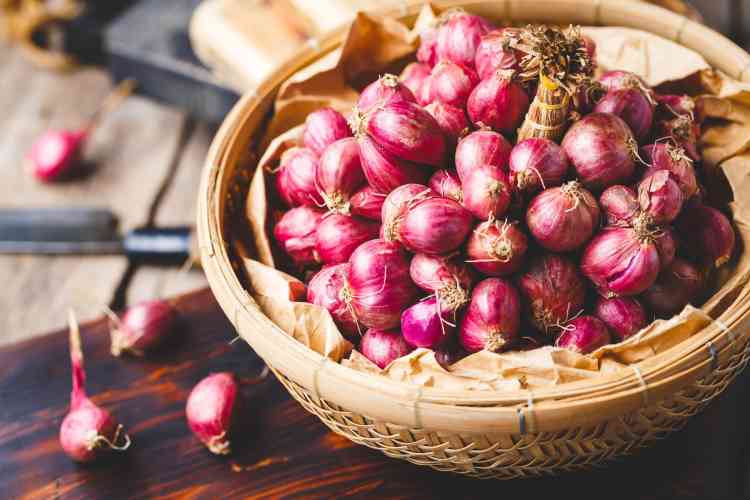
If you’re wondering what to use as a shallot substitute, you’ll be pleased to know that there are many options, most of which you’ll likely already have in your kitchen. Whether you’ve run out or can’t find shallots at the store, you don’t have to put your recipe on hold due to the versatile array of shallot alternatives available.
While these substitutes vary in texture and intensity of flavor, they all work well to replace the sweet yet savory taste of shallots. To find out exactly what you can substitute for shallots, read on for 11 excellent alternatives.
What Are Shallots Used for in Cooking?
Shallots are a great staple ingredient in cooking, adding a unique flavor that combines savory notes with a mild sweetness. Shallots offer the perfect balance when you’re looking to add complexity to your dish without overpowering it. They can be added to dishes raw, such as to salads like potato salad, or cooked down in a variety of recipes, from soups to pasta sauces and stews. You can even roast them whole to create a delicious side dish.
If you want to discover more about how to cook with this versatile ingredient, consider taking one of the many cooking classes near you. These informative and hands-on sessions are led by professional chefs and will teach you how to cook a variety of dishes with shallots as a star ingredient. And if you want to get inspired in your own home, convenient online cooking classes are available to participate in.

The 11 Best Substitutes for Shallots
1. White Onions
The first substitute on our list is the lovely white onion. White onions are a bit milder than other kinds, such as yellow onions, making them a great shallot substitute as they can add sweetness without overpowering your recipe.
They’re best used in recipes that call for cooked shallots. When you’re substituting white onions for shallots in cooked shallot recipes, the general rule is to use one small white onion for every three shallots and to finely dice the white onion, cooking it for an extra few minutes. If diced in very small cubes, white onions can also work as a raw shallot substitute in a pinch.
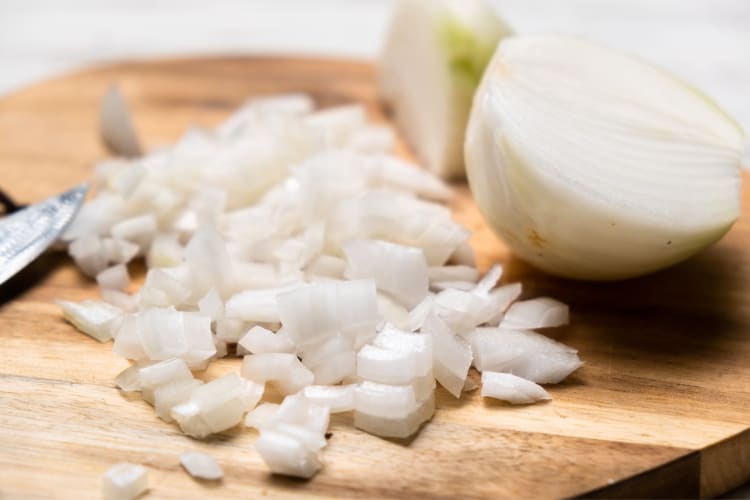
2. Yellow Onions
Shallots substitute well with yellow onions and vice versa. Yellow onions, also known as Spanish onions, make a great shallot substitute because of their similar taste and texture. This type of onion is not too sweet or sharp but is still comparably mild enough to add nuance to any dish.
To use this alternative, simply chop up half a small yellow onion to replace one shallot in your recipe. These onions often work well in recipes that call for raw shallots as well as in cooked dishes, making them a great option for almost any dish originally calling for shallots, from citrus salad to Italian marinara sauce.
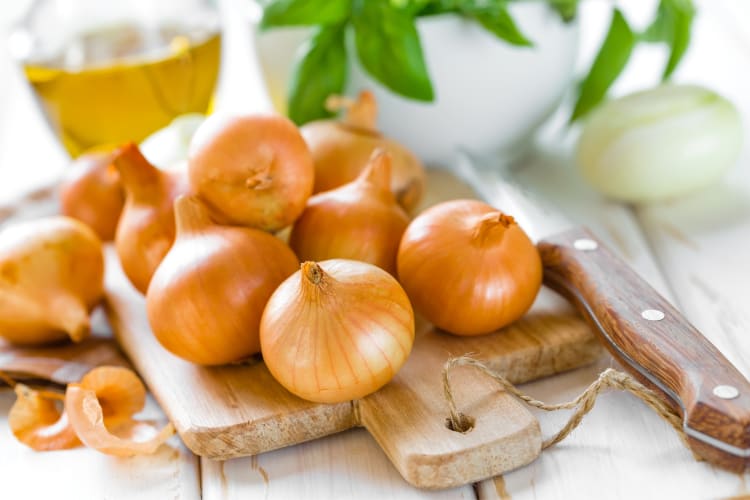
3. Green Onions
Another great shallot substitute is a younger version of the onions just discussed: the green onion. Also known as scallions, these vegetables get harvested before their bases mature into bulbs and are part of the same family as shallots.
Green onions and shallots share a similar flavor profile, making them an easy replacement in recipes with cooked shallots, such as vegetable lo mein. You can also use raw green onions in salads that call for shallots. Use the white bulb section as a shallot substitute for the closest match taste-wise. The green stalk works as well as an alternative but will add a more plant-like flavor to your dish.
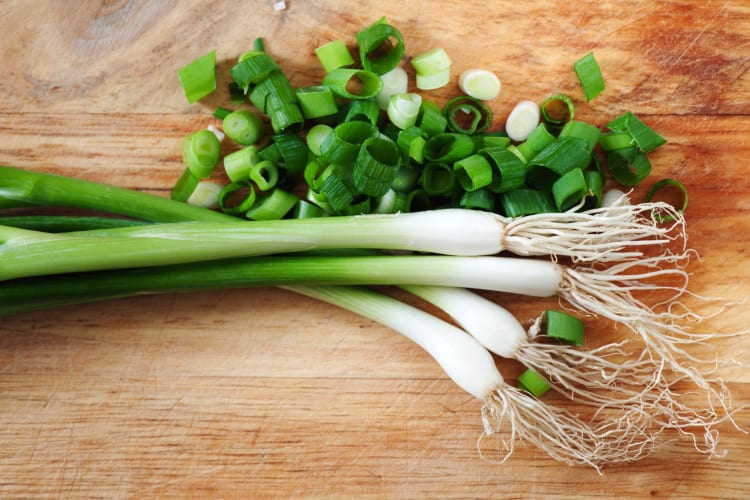
4. Red Onions
Another excellent shallot substitute is the red onion. This type of onion is visually similar to shallots but packs a sharper, spicier punch when it comes to flavor. They work best in recipes that originally call for raw shallots, like salad garnishes.
In cooked recipes, yellow or white onions work best as a shallot substitute, but red onions can work if it’s all you have on hand. Whether using raw or cooked red onions, use a smaller amount than your recipe with shallots calls for so that the strong flavor doesn’t overpower the dish.

5. Sweet Onions
Another shallots substitute to consider is sweet onions. Also known as Vidalia onions, these are excellent to use as long as you adjust for the differences in flavor from shallots.
Sweet onions have a stronger, more pungent flavor and a tougher texture, making it important to finely chop them and cook them down for longer than usual when you’re using them as a replacement, especially for cooked and blended recipes like instant pot butternut squash soup. In terms of ratio, the general rule is to use one sweet onion for every three small shallots.
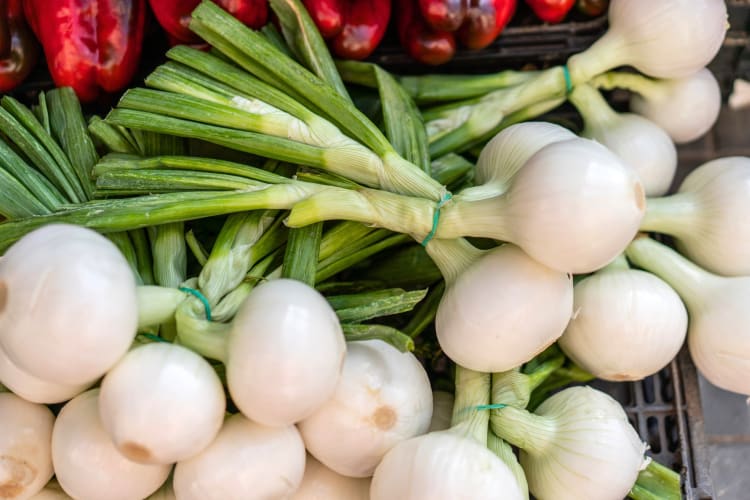
6. Leeks
Leeks are another great shallot substitute that you may already have in the kitchen. This vegetable is extremely versatile and works especially well as a shallot replacement in cooked recipes. One whole leek will replace about six to eight shallots, so if you only need one shallot, use one-eighth to one-sixth of a leek as a replacement.
To use leeks as your shallot substitute, rinse well and then thinly slice the white and light green parts. The dark green part isn’t as similar texture-wise but could still be used to add flavor to certain recipes like soups.

7. Chives
As a close relative to the aforementioned green onion, chives work wonderfully as a raw shallot substitute to be used as a garnish for salads and other dishes. If you have them, the flowers of chives also work well as a shallot substitute.
Whether you have regular chives or chive flowers, simply chop them up and sprinkle them over your dish to add a gorgeous, vibrant green shade. A sprig of chives should be sufficient to substitute one shallot and this alternative can also be added to taste.
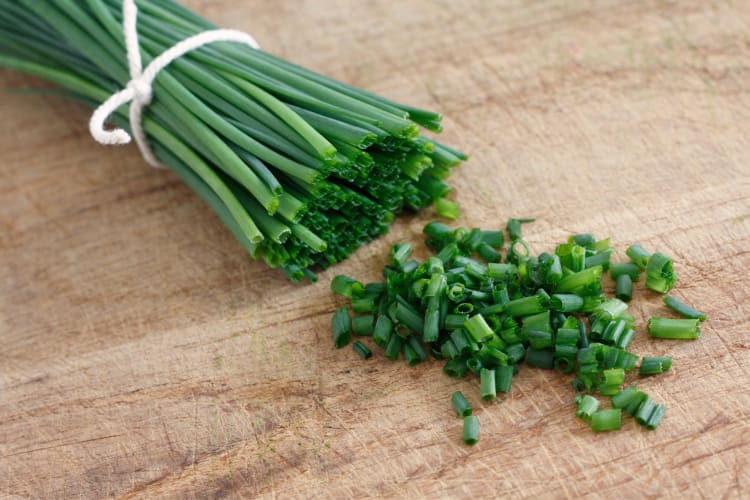
8. Cipollini Onions
Cipollini onions are another great shallot substitute. This ingredient looks similar to shallots in terms of size and has a similar slight sweetness, making them a great option for cooked recipes. Use two cipollini onions for every shallot in your cooked recipe. Notably, this shallot substitute is excellent for recipes that originally call for roasted or caramelized shallots.
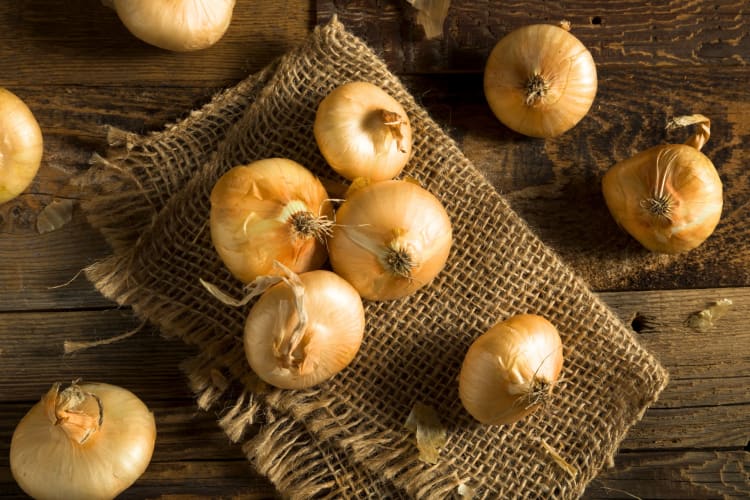
9. Onion Powder
If you’re out of onions and other vegetables but still need a solid shallot substitute, onion powder could be your next best bet. This ingredient lasts much longer than fresh vegetables while still bringing a kick to cooked recipes. It’s also more potent, which means you don't have to use as much for it to be effective. For every shallot in your recipe, replace it with one teaspoon of onion powder. Minced dried onion works as well if you don’t have onion powder.
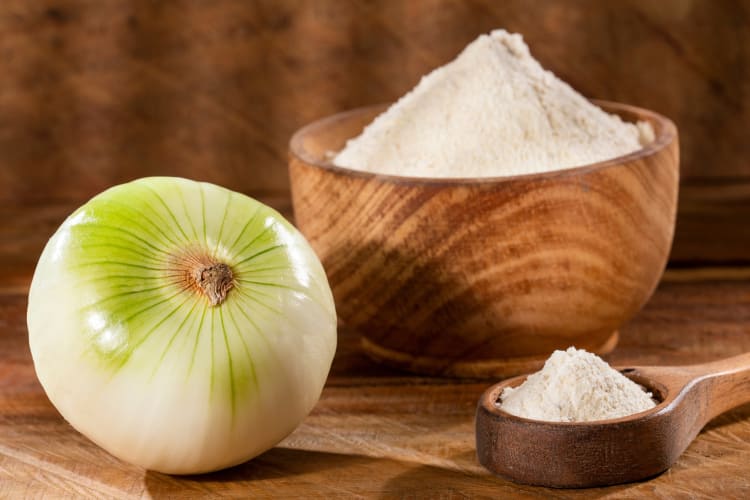
10. Pearl Onions
Pearl onions also work very well as a substitute for shallots. These small yet sweet onions are similar to cipollini onions when it comes to their versatility in different shallot recipes, although the main difference is that they can be harder to peel.
Pearl onions shine well in dishes like casseroles and soups or really any cooked dish that calls for shallots. While this substitute can be added to taste, a general ratio is to use two pearl onions for every shallot in your recipe.

11. Garlic
Our last shallot substitute ingredient is, perhaps surprisingly, garlic. This ingredient is a tasty household staple, with a strong and spicy flavor profile when used raw and a sweeter one after cooking. Both versions are stronger than the mild flavor of shallots.
Generally, one teaspoon of chopped or crushed garlic can replace each teaspoon of shallots. However, it’s best to add garlic slowly to taste, increasing the quantity as needed. Garlic powder or even a garlic powder substitute could also work if you’re out of fresh garlic and are using shallots purely for taste, not texture.
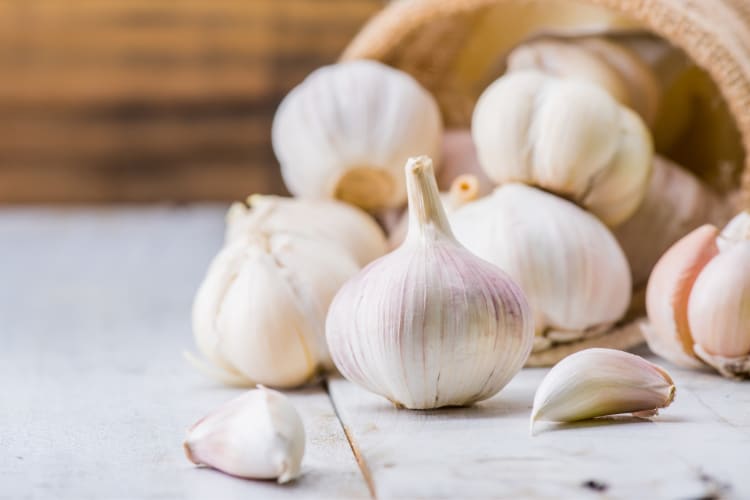
If you’ve run out of shallots or forgot to get some at the grocery store, you’ll be pleased to know that there are many shallot substitutes you can turn to. With most of the alternatives covered in this list being common household ingredients, you’re sure to have at least one around. If not, it should be easy to find these alternatives at the store — so be sure to bring this list with you in case you can’t find shallots on your next grocery trip!
For even more ways to explore your favorite foods, check out other experiences happening on Cozymeal.
